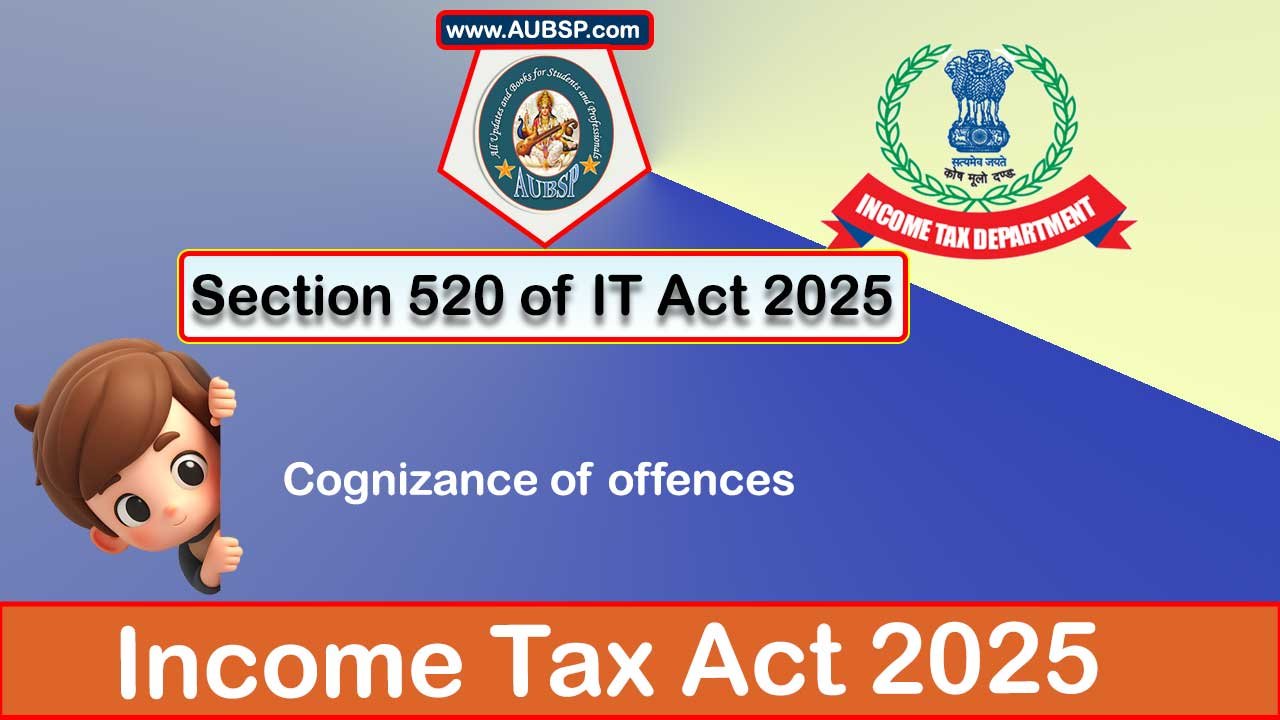Cognizance of offences
[As per the Income Tax Act, 2025 (this Act) w.e.f. 1st April, 2026.]
No court inferior to that of a Judicial Magistrate of the first class shall try any offence under this Act.
FAQs on Section 520 – Cognizance of Offences
1. What is Section 520 of the Income Tax Act, 2025?
Section 520 states that no court inferior to a Judicial Magistrate of the first class shall try any offence under this Act.
2. When does Section 520 of the Income Tax Act, 2025, come into effect?
This section is applicable from 1st April, 2026, for the tax year 2025-26.
3. What does ‘Cognizance of Offences’ mean under this section?
It refers to the legal authority of a court to take up and hear cases related to offences committed under the Income Tax Act, 2025.
4. Which court has the jurisdiction to try offences under this Act?
Only a Judicial Magistrate of the first class (or higher) can try offences under this Act. No lower court has jurisdiction.
5. Can any lower court try tax offences under this Act?
No. A Judicial Magistrate of the first class is the minimum competent authority to try such offences.
6. What types of offences fall under the purview of Section 520?
Any offence prescribed under the Income Tax Act, 2025, such as tax evasion, misreporting of income, or fraudulent claims, would be covered under this section.
7. Does Section 520 apply to both individuals and businesses?
Yes, the section applies to all taxpayers, including individuals, firms, and corporate entities.
8. Are there any exceptions to this rule?
Section 520 does not specify any exceptions; all tax offences under the Income Tax Act, 2025, must be tried by a Judicial Magistrate of the first class or higher.
9. Can a case under Section 520 be settled outside court?
In certain cases, tax authorities may allow compounding of offences under separate provisions. However, if a case proceeds to court, it must be heard by a Judicial Magistrate of the first class.
10. How does this section impact tax litigation?
It ensures that tax offences are tried in competent courts, preventing lower courts from handling cases that require specialized judicial authority.
Section 520 of the Income Tax Act, 2025, effective from April 1, 2026, states that no court inferior to a Judicial Magistrate of the first class shall try any offence under this Act. This ensures that tax-related offences, including evasion, fraud, or misreporting, are handled by competent judicial authorities.
The provision applies to all taxpayers—individuals, firms, and businesses—without exceptions, maintaining the integrity of tax litigation. While some offences may be compounded outside court under separate provisions, cases that proceed to trial must be heard by a Judicial Magistrate of the first class or higher.

